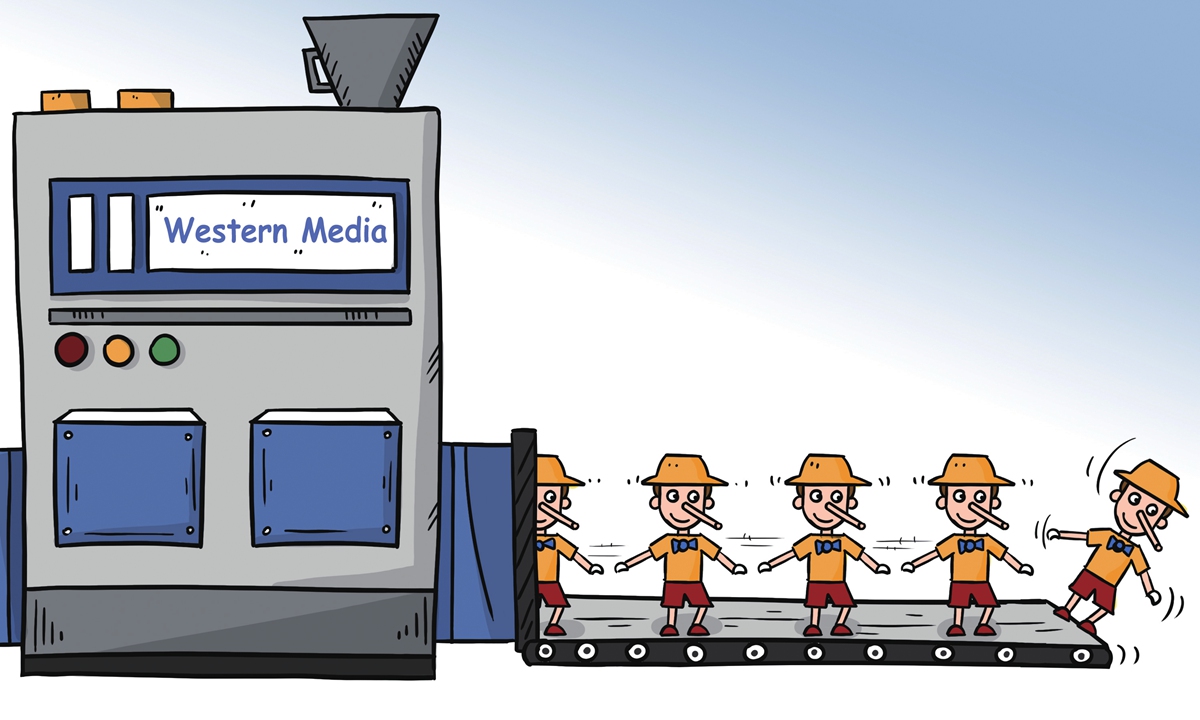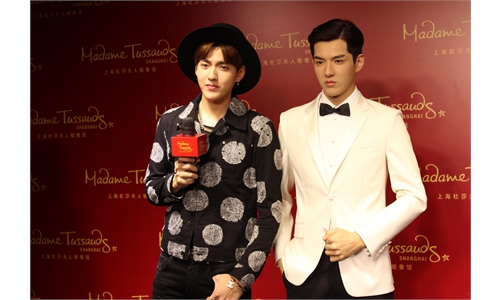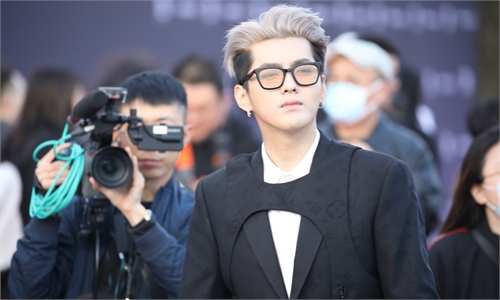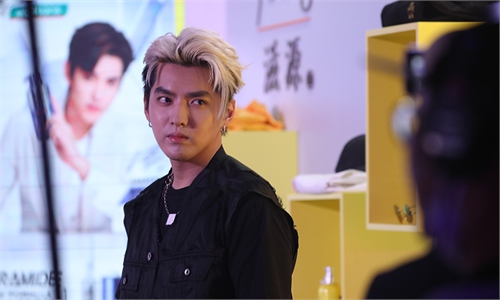How Western media turned suspected celebrity rape case into propaganda opportunity

Illustration: Chen Xia/GT
The detention of Chinese-Canadian pop star Kris Wu has attracted attention and triggered interpretation from many media outlets, including overseas media.Regrettably, although information about Wu is open and transparent on the Chinese internet, when reporting Wu's case, some Western media outlets, such as CNN, VOA, and German national and international television news service Tagesschau, once again displayed their pride and prejudice.
With established ideological bias, they selectively extracted fragments of available information and unfolded a paradoxical interpretation - that is, in fact, journalist-centric.
CNN's report regarded the outcome of the Wu incident as a result of the spread of the so-called #MeToo movement in China. Of course, we cannot say this interpretation is completely groundless. Obviously, CNN found a piece of comment in line with the Western #MeToo narrative from nearly hundreds of millions of posts on Chinese social media platform Sina Weibo. "I have to say thank you to Du Meizhu. I'm really thankful to her for speaking out for women!" CNN quoted one Weibo user as saying. Du is the first woman to come forward with allegations of rape against Kris Wu. But after introducing this post, CNN is even reluctant to show the development and decline of the # MeToo movement itself in the US - let alone figure out the whole context of the Wu incident.
The rise of the #MeToo movement in the US in 2017 was substantially exploited by some groups as an effective instrument against former US president Donald Trump. The movement declined in the US because the forces behind the manipulation found that some elites in the Democratic Party also had sexual harassment records. As a result, US liberal elite media outlets like CNN, which have high political awareness, consciously used the #MeToo movement as a tool to incite gender antagonism and a "color revolution" in rivals of the US, including China.
The VOA Chinese's interpretation of the Wu incident genuinely embodies its true color as a Cold War propaganda tool. The VOA Chinese entirely focused on the political mobilization capacity of the so-called fan circles. It also attempted to label them as the so-called civil society. It also strives to create a narrative that the "fan circles" culture has made the Chinese government feel awkward and difficult to manage.
As for the report in tagesschau.de, a German TV News Program, the description of the Wu incident was perhaps simpler: Starting with Wu's Canadian citizenship, it interpreted the detention as a part of the Chinese government's diplomatic entanglements with the Canadian government.
The narrative in the above-mentioned media outlets is the embodiment of the Western media's bias against China, and their condescending arrogance of pointing their fingers at China. They have no interest in accurately or fully translating into English the announcement of the Beijing police. And they were not interested in carefully interpreting what the information that "suspected rape" revealed.
In fact, if they really want an in-depth story about Wu's case, they could resort to a few high-quality online articles that can help them paint a more complex and vivid picture of China's online social ecology and help them have a more accurate understanding of the challenges and realities that China is now facing - particularly with its governance on "fan economy." But obviously, they have no interest in really doing so.
This is partly because such a truthful presentation might reveal to Western citizens the fact that the Chinese government is committed to protecting the rights of women and minors, and cracking down on all forms of crime. China is not a so-called authoritarian and dictatorial state that some Western media have stigmatized with their distorted depictions.
In fact, from the perspective of Western communication studies, the reports from these three media outlets embody the classic "information cocoon" effect. But this cocoon is not caused by asymmetric information or opaque information. They come from solidification of ideas, as well as the monopoly of information, and expressions of power.
The Western media, which monopolize the authoritative position of information transmission in the world, are trying to make their audiences live in a world that is in line with the cognitive concepts and frameworks of the media owners. But this is an imaginary world composed of materials with selective use.
Fortunately, as the flow of information interactions accelerates, and as more and more Chinese audiences become increasingly aware of this distortion from the outside, it is only a matter of time before this "cocoon" breaks apart.
The author is professor at the School of International Relations and Public Affairs of Fudan University. opinion@globaltimes.com.cn



